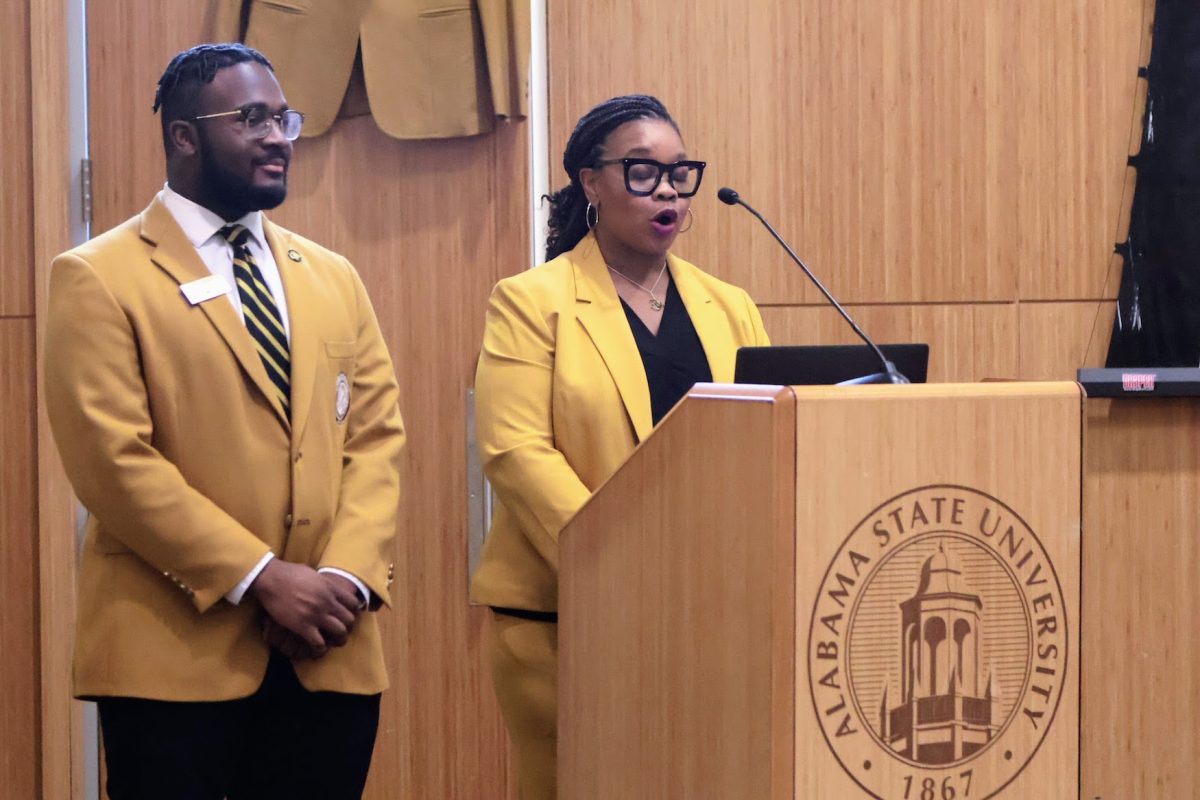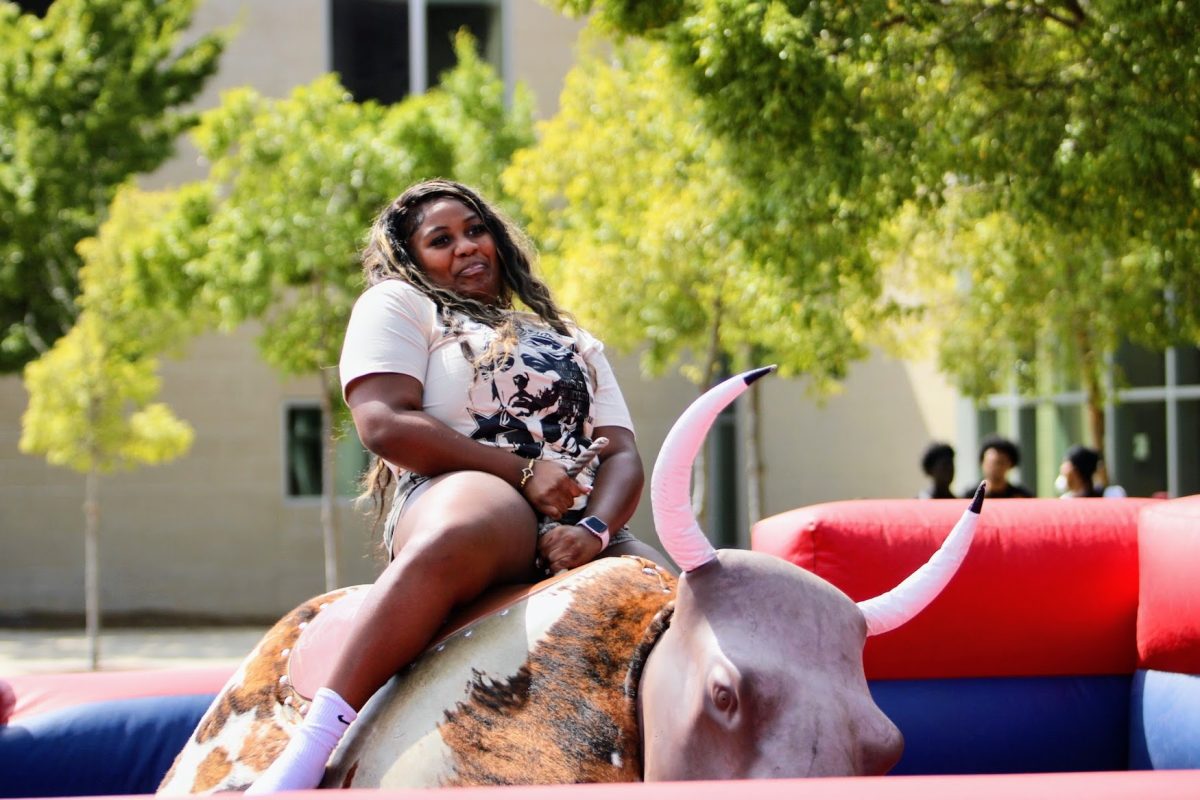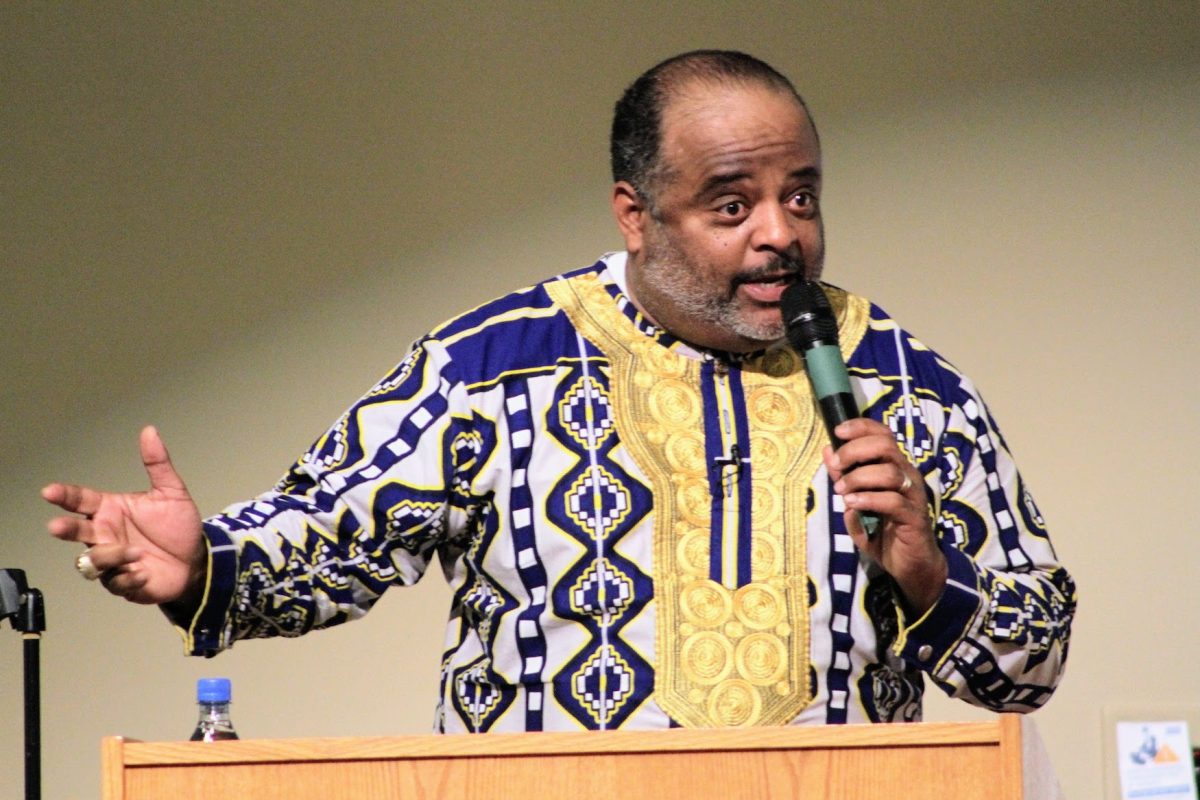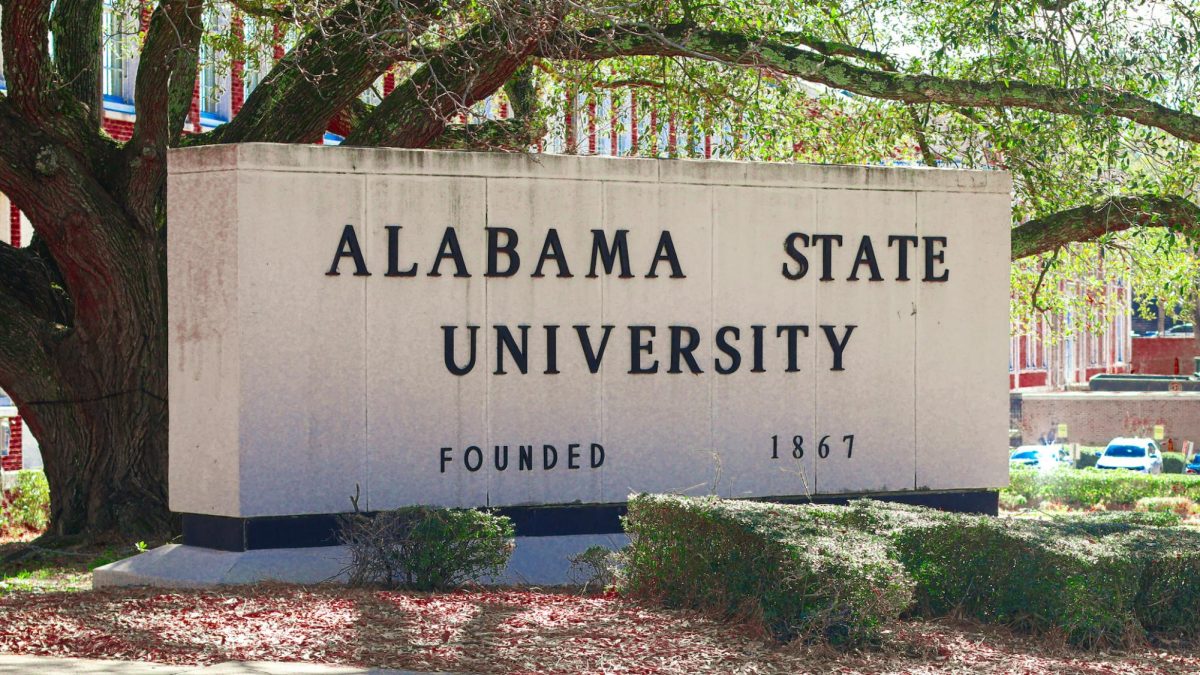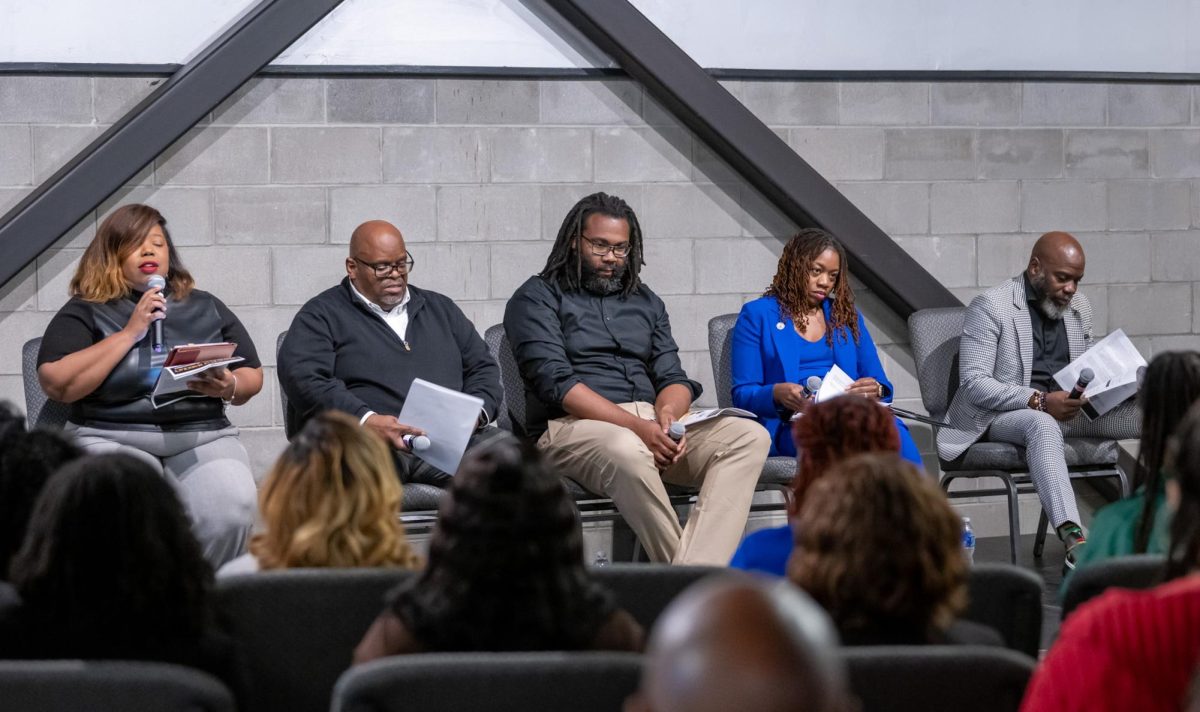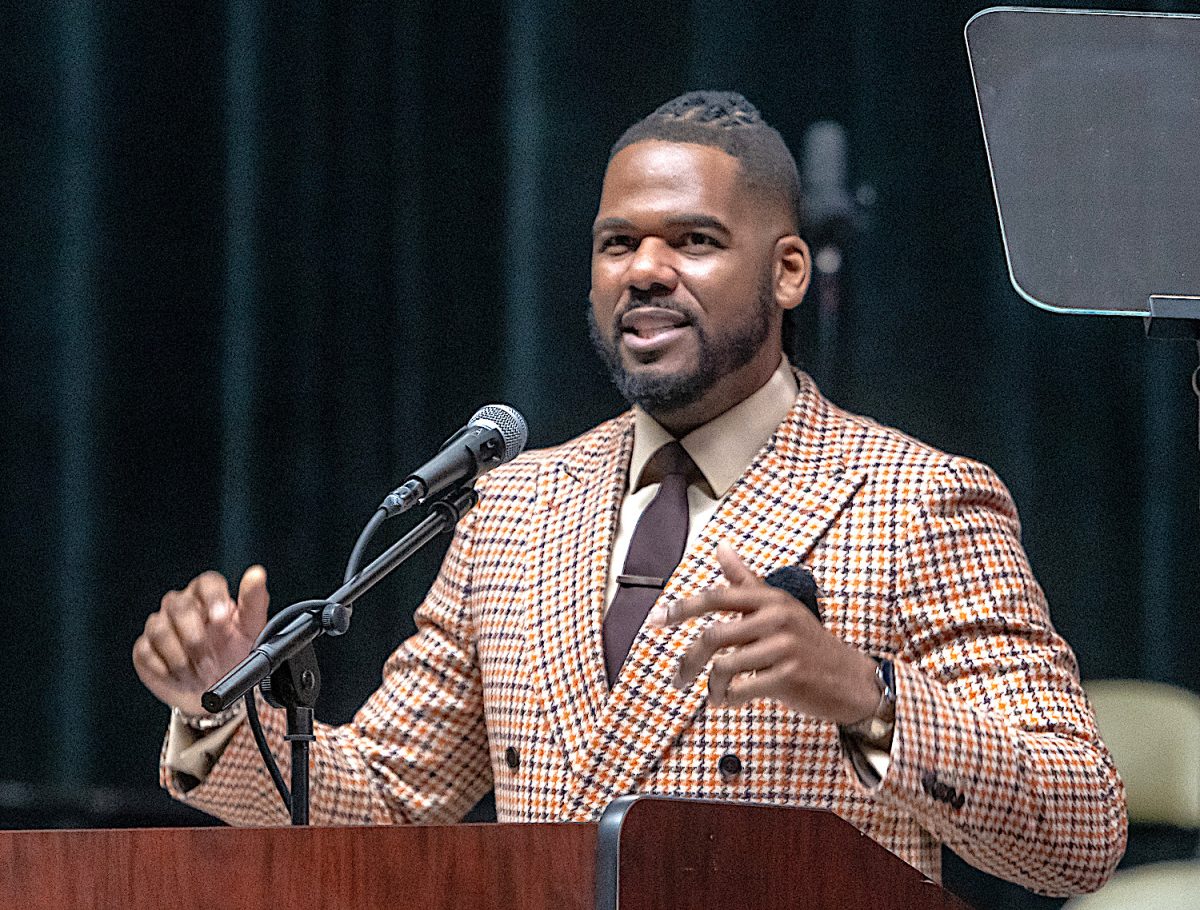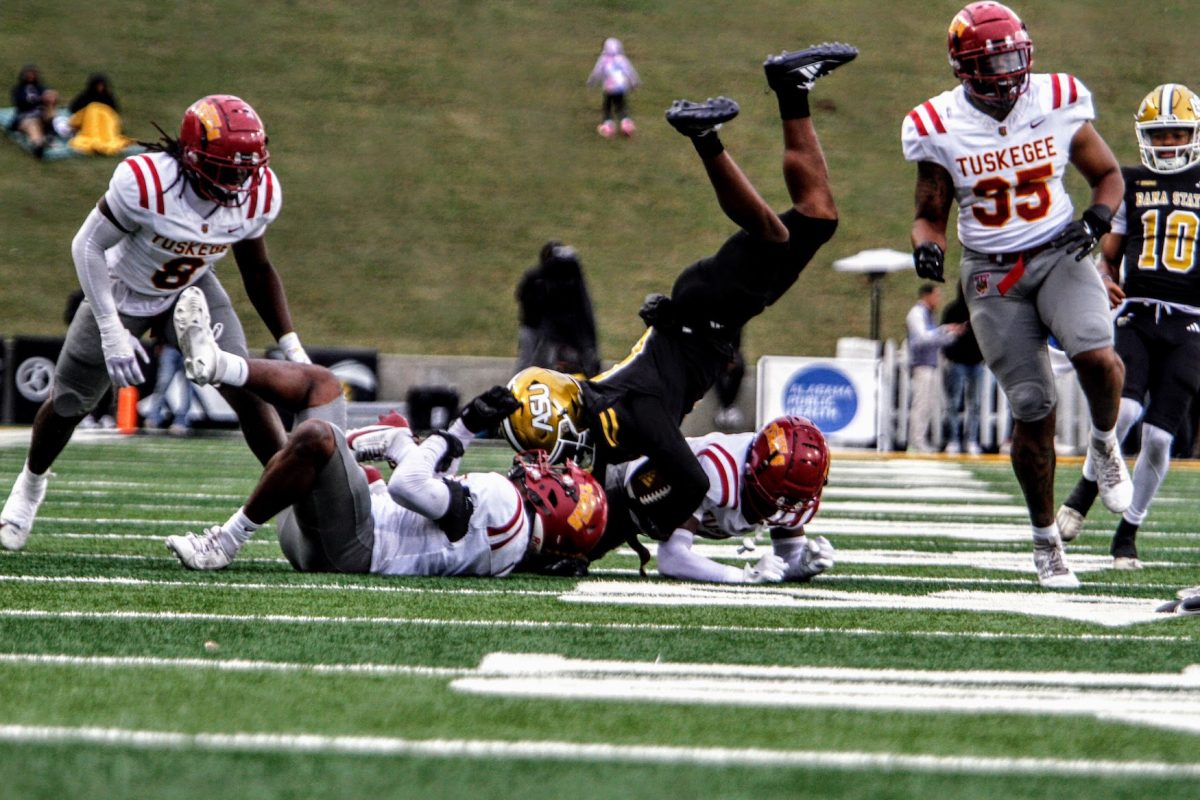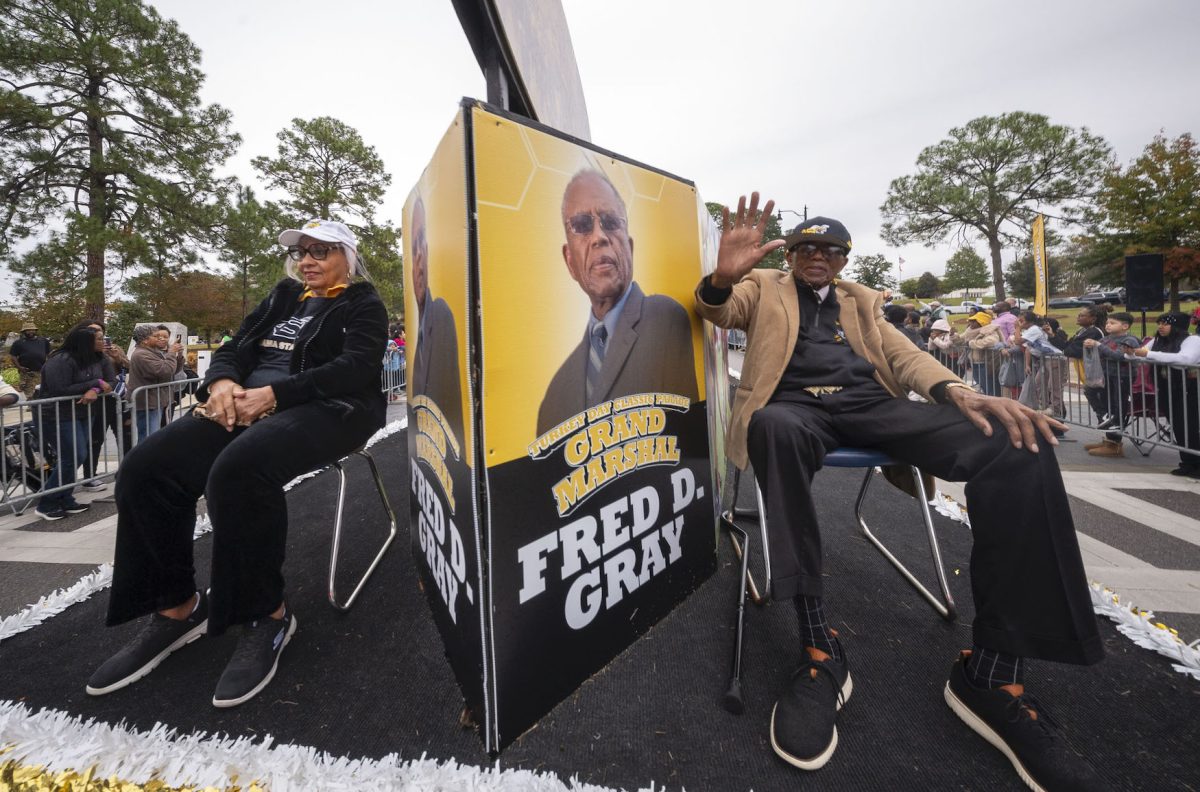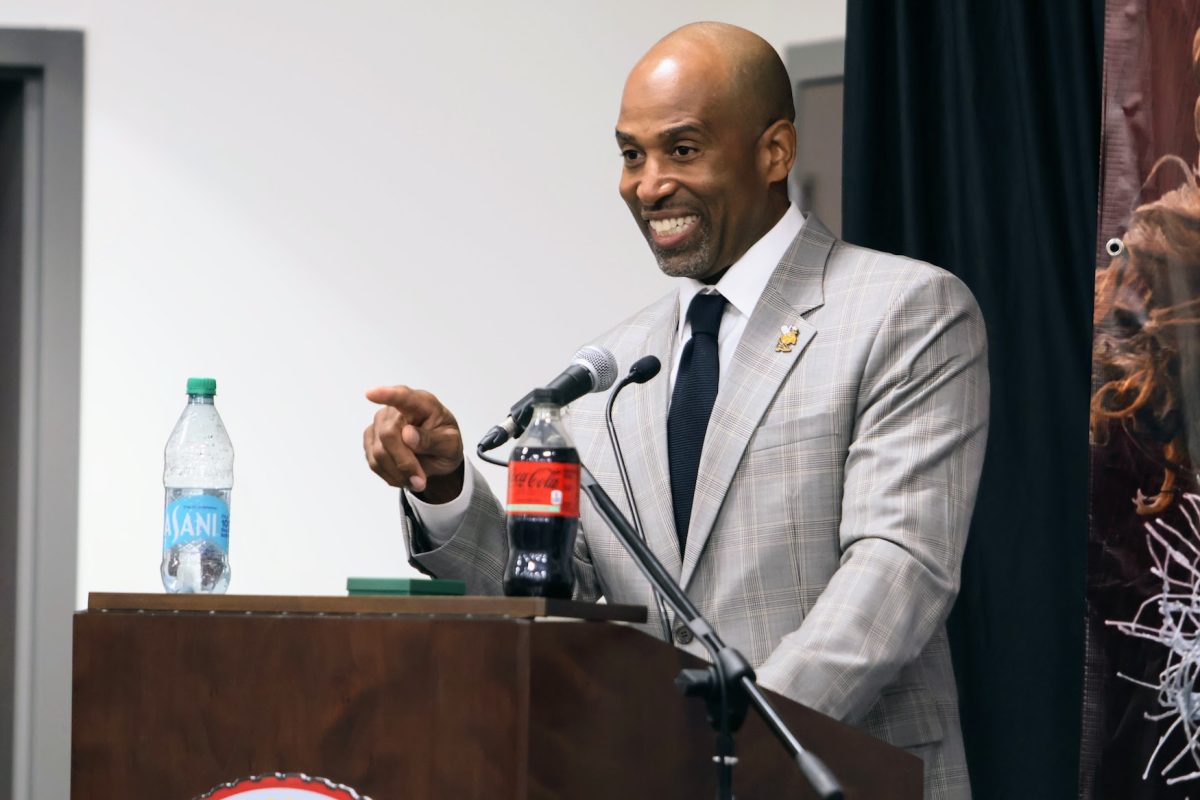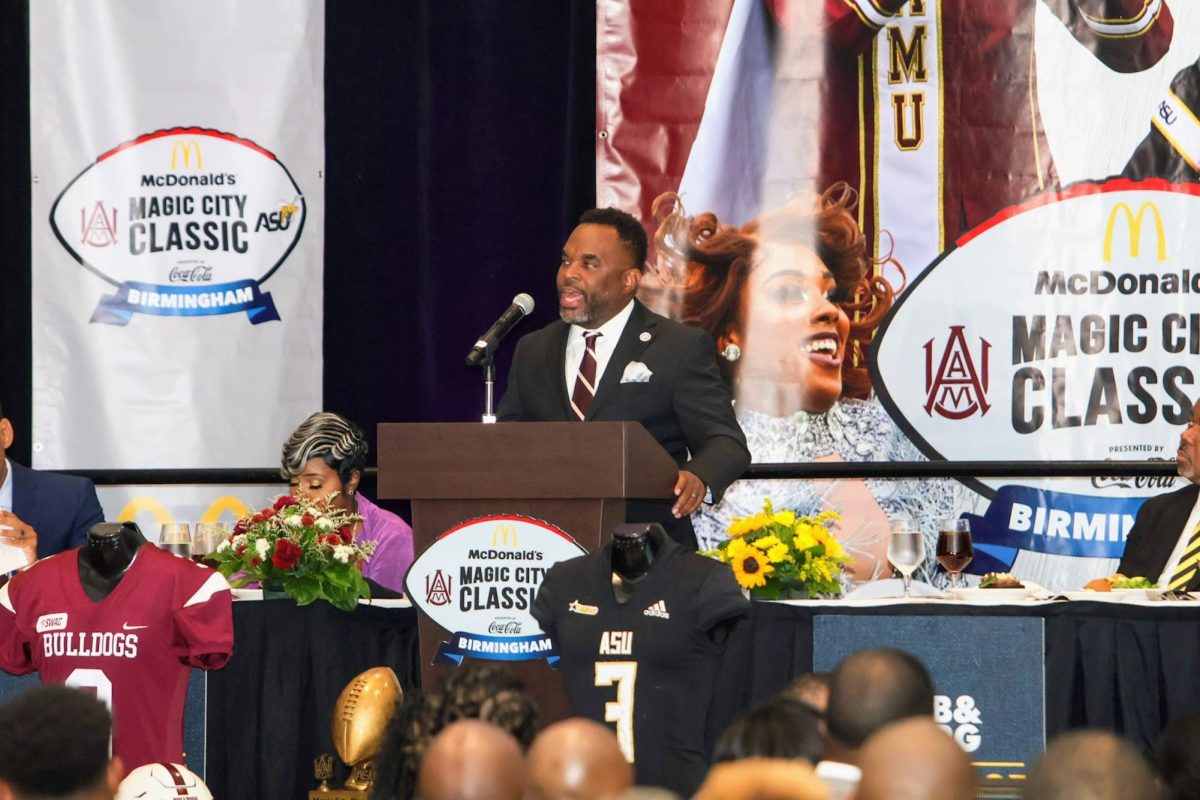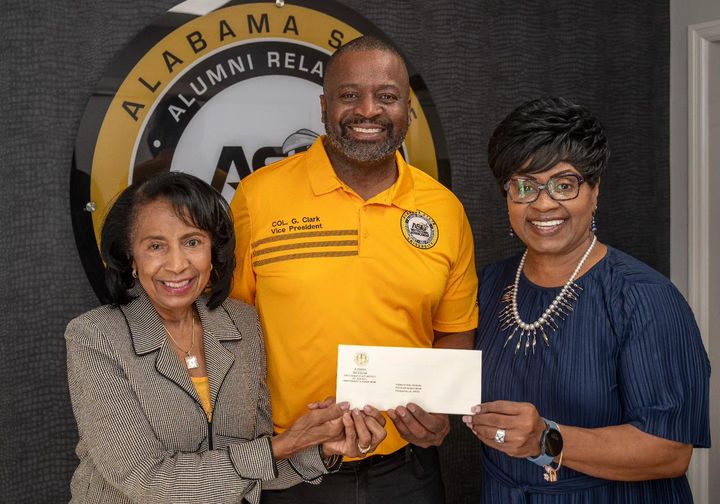Alabama State University commemorated the 40th anniversary of its prestigious Golden Ambassador program, a selective student organization founded in 1984 under the administration of former university president Leon Howard, Ed.D., former athletic director, Arthur D. Barnett and former chief operations officer, John F. Knight Jr.
The Golden Ambassadors, known for their gold jackets, serve as the official greeting body for the university and are recognized as the “Gold Standard of Service.” The program was established under the Office of Communications and Public Affairs with the goals of developing student leadership and fostering community outreach.
During the celebration, current President Quinton T. Ross Jr., Ed.D., reflected on his admiration for the Golden Ambassadors during his time as a student.
“I can remember when I was a student here on this campus and I idolized the Golden Ambassadors because they were always on point at university functions,” Ross said. “They represented us all over the world and I was just proud to see my classmates and my colleagues involved in this prestigious organization.”
Ross emphasized how deeply intertwined the Golden Ambassadors were with the fabric of campus life and their role in enhancing the university’s public image. He mentioned how their presence was always felt during major events, highlighting their service to the university.
“Now, while I wasn’t a Golden Ambassador, I was the student body president,” Ross continued. “But we all worked together as organizations to represent the university well. And today, we celebrate not only the legacy and history of the Golden Ambassadors but also the new generation stepping into this proud tradition.”
He added a personal note, mentioning the special joy he felt seeing Aaron McNeil Jr. carry on the legacy as a current Golden Ambassador. McNeil Jr. is the son of Ross’ former classmate and fellow student leader, Aaron McNeil Sr. Ross noted that seeing the children of his peers step into roles of leadership at the university was a rewarding experience, one that spoke to the intergenerational influence of the Golden Ambassadors.
The event also featured reflections from distinguished alumni, including Maya A. McKenzie, Esq., senior counsel of tech policy at the Entertainment Software Association. McKenzie shared how her time as a Golden Ambassador was pivotal in shaping her professional development, emphasizing the unique intergenerational mentorship aspect of the program.
“My experience as a Golden Ambassador was one of the most memorable parts of my collegiate tenure,” McKenzie began. “It wasn’t just about representing the university but about the sense of pride it instilled in me. I learned what it truly meant to be an Alabama State University Hornet and that pride has carried me throughout my career and into my life beyond ASU.”
McKenzie highlighted how the Golden Ambassadors program gave her a platform to grow as a leader and develop critical interpersonal skills. Through her role, she engaged with university leadership, external stakeholders and peers, all while upholding the values of integrity, professionalism and service that define the Golden Ambassadors.
“One of the things I love most about the Golden Ambassador experience is the intergenerational aspect of it,” she said. “You have these young 20-somethings, fresh and eager, figuring out their place in the world and they are being guided intentionally by older alumni and mentors who have been through it all. That guidance makes us better Hornets, better professionals and better people.”
McKenzie went on to explain how this mentorship and support helped her find her voice as a young woman, particularly in the context of being a Black female professional. She acknowledged that her time as a Golden Ambassador gave her the confidence to navigate spaces that were not always welcoming or diverse and to do so with grace and poise.
“Being a Golden Ambassador was about more than just wearing a gold jacket and attending university events,” McKenzie continued. “It was about learning how to represent something bigger than myself. It was about understanding the weight of being a Black woman in the professional world and learning how to carry that responsibility with pride and dignity.”
Patrick Nelson, principal of McKee Middle School in Montgomery, Alabama, also shared his memories of being a Golden Ambassador during the program’s early years.
“Much has been said today about the gold standard, and that’s exactly what being a Golden Ambassador meant to us,” Nelson began. “There were about 25 of us selected in those first few years after the program’s inception in 1984, and it meant holding ourselves to the highest level of scholarship, integrity and commitment. We knew that we were representing not just ourselves but Alabama State University and all it stood for.”
Nelson emphasized that as a Golden Ambassador, the group was expected to lead by example, not only in academic achievement but also in their conduct and contributions to the community. He noted that they were often called upon for important events, from representing the president and board of trustees, to engaging with dignitaries and officials at university and city events.
“Anytime the university needed us we were there,” Nelson said. “Whether it was representing ASU at high-profile events or simply serving in our everyday roles as students, we understood that being a Golden Ambassador meant embodying excellence at all times. The expectations were high and we took them seriously.”
Nelson reflected on how his experience as a Golden Ambassador helped shape his leadership style, a foundation he continues to build upon as a school principal. He shared that the values of integrity and excellence have transcended his time at the university and influenced his work with younger students.
“Now, as a principal, I have student ambassadors in my school and I see the same principles at work,” he explained. “These 11, 12, and 13-year-olds are just starting to understand what it means to be leaders, and I think back to my own experience as a Golden Ambassador. It’s about setting a trajectory for success, showing students what excellence looks like and helping them grow into responsible, accomplished individuals.”
John F. Knight Jr., co-founder of the Golden Ambassadors program at the university, shared the inspiring origins and vision behind the prestigious organization, reflecting on how far it has come over the past 40 years. As one of the key figures responsible for establishing the group alongside Arthur Barnett and Leon Howard, Knight spoke about the significance of the program and the legacy it has created at the university.
“It was a collective decision between myself, Arthur Barnett, and Dr. Leon Howard,” Knight explained. “The idea came to us after we traveled to another university for a basketball game. We noticed a team of students dressed in jackets, and it gave us the concept of what could be done at Alabama State University. We thought, why not create something similar that would showcase our students and their excellence?”
That moment of inspiration sparked the creation of the Golden Ambassadors program. Knight and his colleagues worked diligently to establish the program, building it under the Office of Communications and Public Affairs. The goal was to not only highlight the best and brightest students at the university but to give those students a platform to develop their leadership skills and serve as the university’s official greeting body.
“We came back to ASU under the leadership of Dr. Leon Howard and Mr. Barnett, and we set out to form what became known as the Golden Ambassadors,” Knight said. “We set high standards for this group from the very beginning. It wasn’t just about academic performance. We were looking for students with leadership potential—those who had integrity, poise and the ability to represent the university at the highest level.”
The selection process for the first Golden Ambassadors was rigorous, and Knight emphasized that it involved faculty members and others who would evaluate students based on more than just their grades. Leadership, character and their ability to embody the values of the university were key criteria in determining who would be chosen for this prestigious role.
“We didn’t just handpick them ourselves,” Knight said. “We put a committee together—faculty members, administrators—who evaluated the students, looking at their background, their leadership qualities and their potential. We wanted students who could stand as examples of what Alabama State University represents, beyond just their academic achievements.”
As Knight reflected on the long-term impact of the Golden Ambassadors program, he expressed pride in the lasting positive impression the group has made both within and beyond the university. He noted that Golden Ambassadors have gone on to achieve success in a wide range of fields, from politics and medicine to law and corporate management, all while carrying with them the values instilled in them during their time at the university.
“The Golden Ambassadors have been very successful, leaving a positive impression not only within the local community but across the state and even the country,” Knight said. “Our Golden Ambassadors have gone on to achieve great things in every profession you can think of. Whether it’s in politics, medicine, law or business, they represent Alabama State University and its commitment to excellence.”


